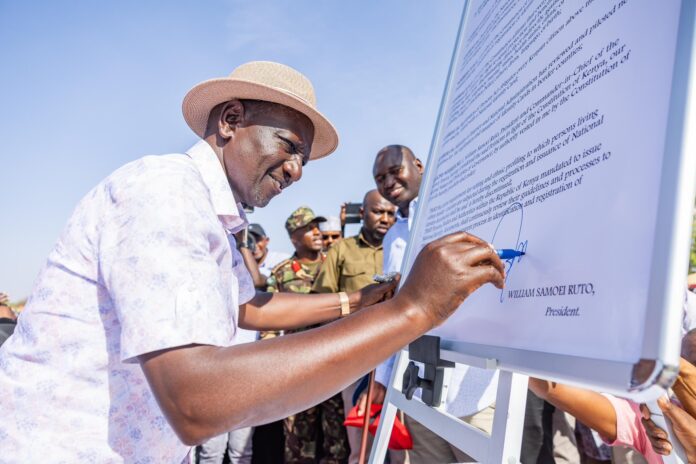President William Ruto and his deputy Kithure Kindiki’s much anticipated tour to the Northeastern region today Thursday,5th enters the third and final day as the area residents continue to receive the guests made up senior government administrators and massive development and financial goodies. The visit which started on Tuesday 4th February saw President Ruto traverse the region which for a long time been neglected and kept at bay due to the high levels of insecurity and safety concerns.
This visit seeks to monitor government programs and interact with local leaders and has been characterized by critical infrastructural changes as well as economic empowerment initiatives.
President Ruto, during his visit, commenced several road projects with the aim of connecting the region. These include tarmacking major roads that link Garissa, Wajir and Mandera. He also made public efforts to expand water supply projects to curb the incessant drought issues, ensuring that residents have access to clean drinking water.
To further strengthen the local economy, the president launched new initiatives to supervise livestock farmers, including government subsidy for livestock insurance and improved marketing for pastoralists. He also promised the residents more money for education through increased employment of teachers to lessen the deficits in the region’s schools.
The need for security was also a part of the discussion where President Ruto assured participants of the meeting on his government’s determination to curb banditry and terrorism through enhancement of security operations. He revealed that further security troops and resources will be assigned to the area to improve peace and stability.
In a major source sigh of relief which sparked happiness and excitement for the locals President William Ruto declared that the issuance of national identity cards will no longer require extensive vetting previously witnessed. The President said that all Kenyan children are equal, as stipulated by the Constitution, and no region should face discriminatory practices when applying for the crucial document.







